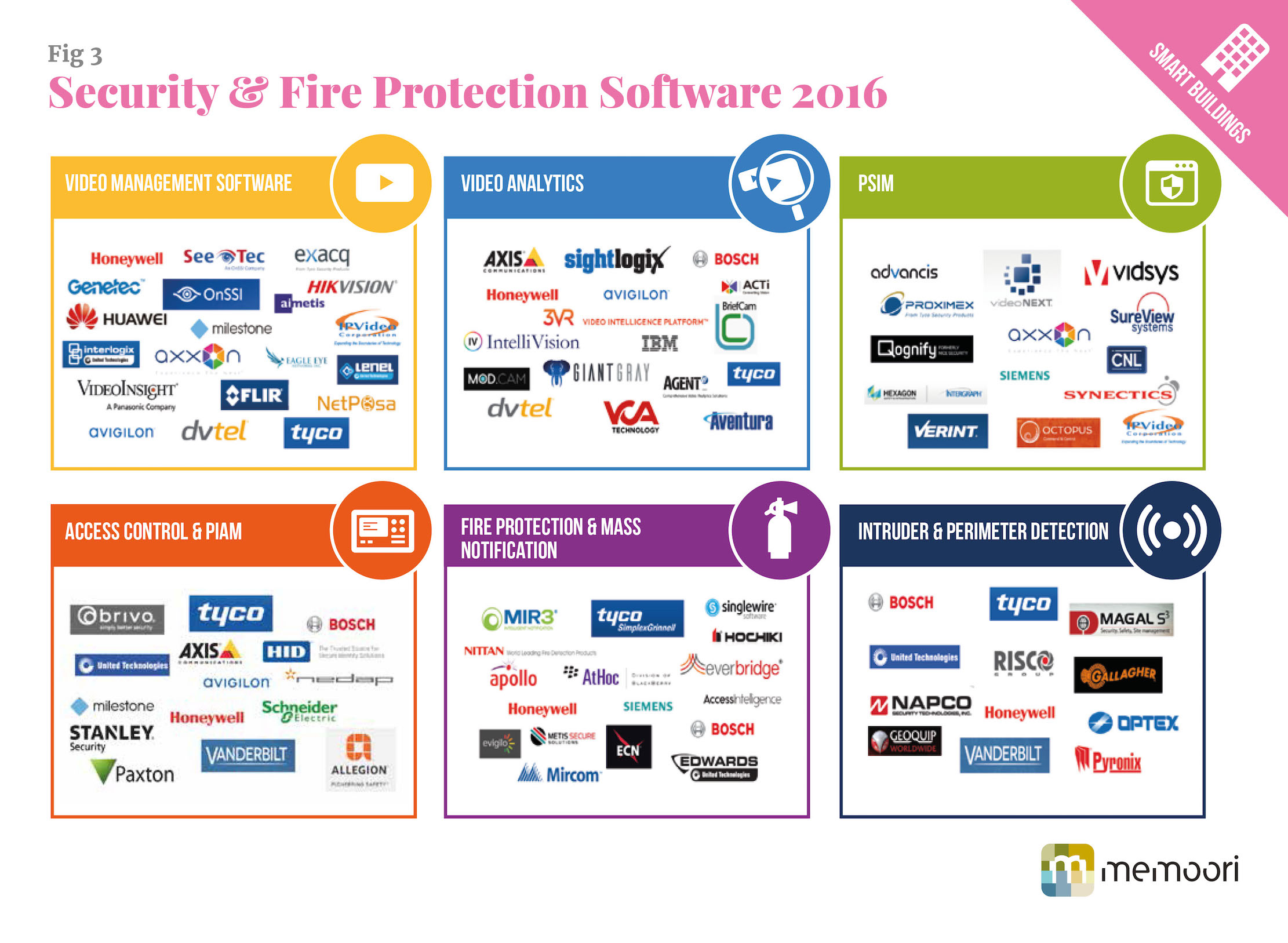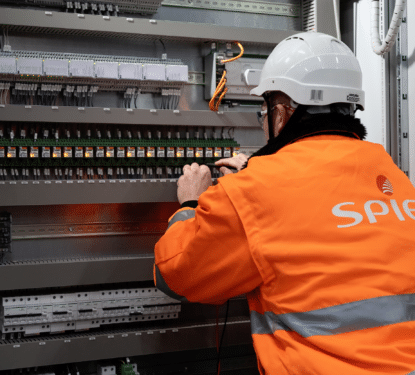This article was written by Daphne Tomlinson of Tomlinson Business Research.
The major security systems companies are facing competitive pressure from a wave of smart building startups in the continuing race towards IoT. As a response to the potential threat, Tyco and Bosch have recently increased their investments in innovation through in-house R&D, early stage incubator programs, strategic partnerships and startup funding.
In Memoori's recently published report, The Market for Building Performance Software, we tracked 167 investment announcements in companies offering software for enterprise energy management, fire and security and real estate and property management over the past five years.

The focus is on analytics, deep learning and machine vision to enhance IoT in non-residential buildings and smart homes as well as identification & authentication, biometrics, video analytics and 3D imaging sensors.
Tyco announced in March this year that it had opened innovation centers aimed at solving broader customer problems while championing startups in security, fire protection and smart connected technologies. The first centers are operating in Silicon Valley and Tel Aviv, with more centers planned for other locations later this year.
The company has also launched Tyco Innovation Garage facilities in Silicon Valley and Tel Aviv. These centers team Tyco's internal R&D capabilities with partners and stakeholders inside and outside the company to focus on solving complex customer problems by applying advanced technologies and sensor-based analytics.
The most recent participant in Tyco Innovation's Tel Aviv Program announced last week is PointGrab, an Israeli startup, which will provide the company with exposure and access to its customers and top clients, experienced professional counsel, and a gateway to the global marketplace through Tyco’s multi-national channels.
Pointgrab's edge-analytics IoT sensor has been identified by Tyco as disruptive technology for smart buildings. By embedding deep learning technology into optical sensing devices, PointGrab’s CogniPoint™ sensor provides indoor occupant analytics and energy savings in commercial buildings, enabling unprecedented precision in the detection of occupants’ locations, count, and movements, as well as precise readings of ambient lighting and motion sensing.
There are around 15 companies to date in Tyco's innovation portfolio, two of which are:
- Magos, inventor of low-cost, low-power consumption radar for perimeter protection in non-military applications, that can be easily integrated with existing VMS, PSIM and other control software.
- ContinUse Biometrics, another Israeli startup in which Tyco made a strategic investment (reported to be about $1 million) in May 2016, has developed a biometric sensor capable of continuous non-contact distant reading of bio-medical parameters based on the molecule and internal organ vibrations in the subject's body. The data can be used to authenticate a person's identity as well as provide information about his/her fitness and general health. For example, this innovative sensor could be used for remote authentication of people's identity in workplaces and critical infrastructure for applications such as access control or work attendance systems.
Tyco is not the only building systems company interested in PointGrab. The company also attracted funding from the venture capital arm of ABB in December 2015 in an investment totaling $5 million from ABB Technology Ventures (Zurich, Switzerland), EcoMachines Ventures (London, UK), and Flex Lab IX (Milpitas, California, USA).
In a similar approach to Tyco, Bosch, the German global conglomerate also wanted to test other ways of bringing innovation in from the outside so it set up Internet of Things labs at two Swiss universities: St. Gallen and the Swiss Federal Institute of Technology (ETH).
Zurich-based ComfyLight, the first start-up to be spun out of the lab, makes a light bulb that is also a home security system. When you enter a room, ComfyLight automatically switches the light on, and turns it off again when you leave. Over time it learns how you move around at home so it can simulate your movements perfectly when you’re out, turning lights on and off to make it look like someone is at home.
ComfyLight’s presence sensor also detects unexpected movements in your home while you are out and alerts you to what’s happening via your smart phone. ComfyLight has raised close to €1 million in its first round of investment from two private angel investors and Bosch. The product is expected to be on the market by summer 2016.
Bosch have also been investing in startup companies through their venture capital arm. Robert Bosch Venture Capital GmbH (RBVC) have recently funded investments including the Swedish video analytics company, Modcam, Israeli sensor company, UniSpectral and San Francisco based PubNub, a Data Stream Network provider for various IoT applications.
[contact-form-7 id="3204" title="memoori-newsletter"]



